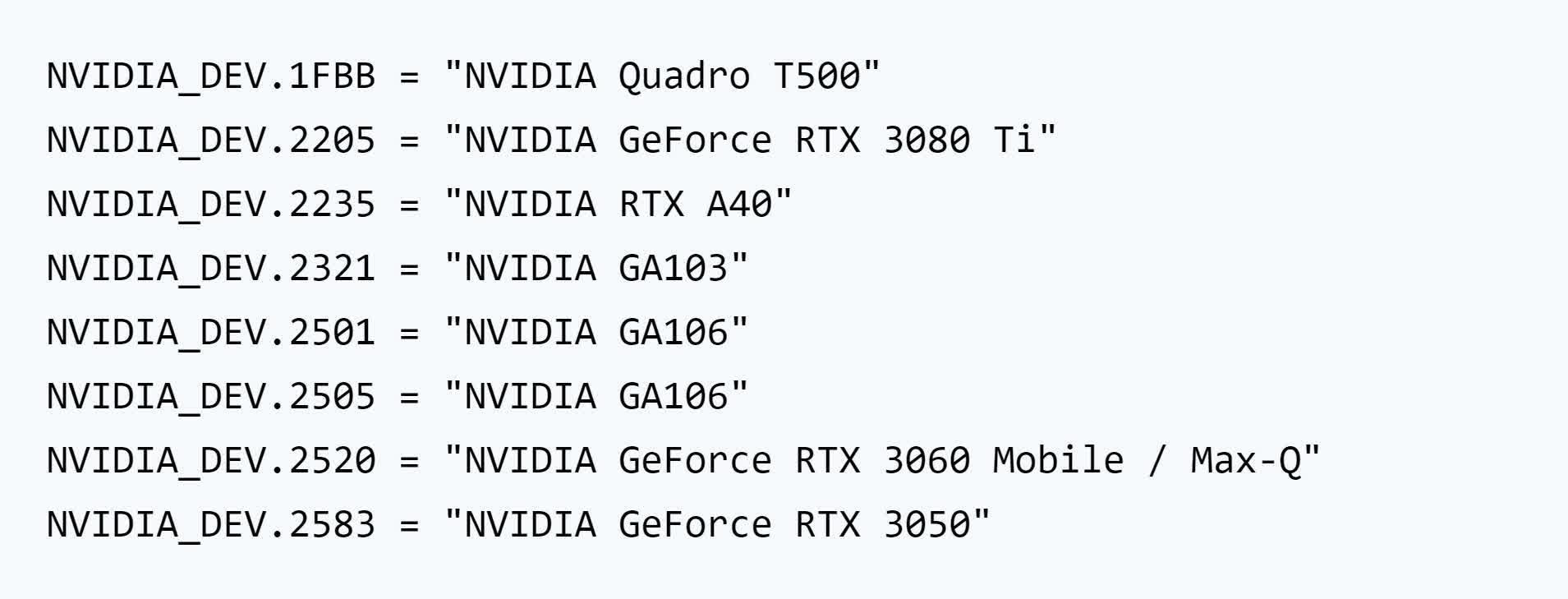Something to look forward to: It’s no secret that Nvidia still has plenty of Ampere releases up its sleeve following the recent launch of the RTX 3060 Ti. Based on HP’s OEM GPU driver update support list, the long-rumored RTX 3080 Ti is on its way. There’s also mention of an RTX 3070 Ti, two vanilla versions of the RTX 3060, and an RTX 3050.
While no card names appear on the document, Laptopvideo2go cross-referenced the IDs using the public PCI ID list to discover some of the entries. It seems that the device ID, NVIDIA_DEV.2205, is a reference to the GA102 [GeForce RTX 3080 Ti]. Videocardz reports that other pieces of software have also tied the 2205 ID with the RTX 3080 Ti.
Last month brought rumors of a Ti version of the RTX 3080 launching in January, likely with 20GB of GDDR6X. That’s double what the standard RTX 3080 packs, and could worry AMD, whose rival Radeon RX 6900 XT has 16GB of GDDR6. Don’t be surprised to see the RTX 3080 Ti cost the same $999 as team red’s flagship card while offering improved performance.
There’s been no word of an RTX 3080 Ti from Nvidia, but then the company did launch the RTX 3060 Ti with barely any word beforehand. We’ve heard that the card will feature a 320-bit memory bus, 760 GBps memory bandwidth, 9,984 CUDA cores (78 streaming multiprocessors), and a 320W TDP.
Image credit:Laptopvideo2go
Elsewhere on HP’s OEM driver list, there’s mention of desktop and mobile versions of an RTX 3070 Ti—another card that we’ve previously seen rumored. The product is also thought to come with 16GB of VRAM, though it’s of the GDDR6 variety.
Two variations of the RTX 3060 pop up, one with 6GB and one with 12GB, and there are mobile versions of the RTX 3060 and an RTX 3050.
While leaks of this sort should always be taken with a pinch of salt, it’s not the first time we’ve heard of these cards being in the works. Additionally, PCGamesN notes that graphics card manufacturer Mali has registered many of the same GPUs with the Eurasian Economic Commission.
Hopefully, the next Amperes won’t arrive with the same availability problems as their predecessors, but they probably will.
Source link
